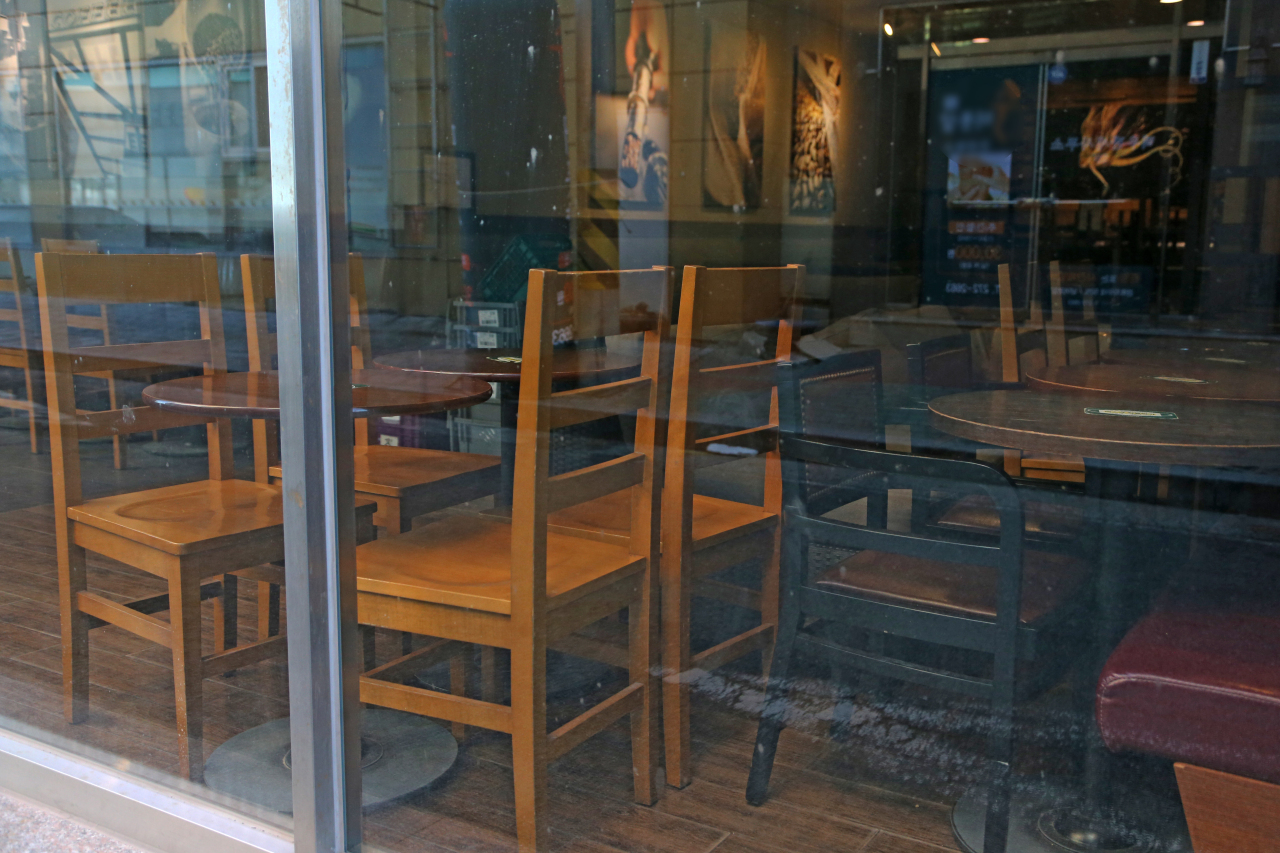Private gatherings of five or more people will be banned nationwide starting Monday, as the country struggles to contain the largest wave of COVID-19 infections since the pandemic began.
The ban, which has already been in place in the Seoul area since Dec. 23, is being expanded nationwide for two weeks from Monday until Jan. 17, the government said over the weekend.
The updated rules ban groups of five or more from meeting anywhere, indoors or outdoors, with the goal of socializing. In-person meetings are permitted for essential, urgent business purposes.
Newly minted Minister of Health and Welfare Kwon Deok-cheol told a news briefing that the aim is to “stabilize the trend of new infections before vaccinations begin in February.”
“We are facing what might be the final stage of the battle until vaccines and cures arrive,” he said.
Meanwhile, the government said once again that it would not move to the toughest tier of its social distancing system, as that would entail further restrictions on businesses.
Following the announcement on which businesses and venues can open and which can’t, criticism is mounting that the rules are arbitrary -- especially with regards to sports facilities.
While taekwondo halls are allowed to resume operations, other martial arts facilities are to stay closed. Ballet schools are OK, but gyms and Pilates studios aren’t. Winter sports venues, including ski resorts and sledding hills, were also cleared to open.
Last week, 153 operators of sports facilities filed a claim for damages against the government totaling a combined 765 million won ($704,600) for targeting them for closure. If successful, each plaintiff would receive around 5 million won.
Korea confirmed 657 more cases on Sunday, according to the Korea Disease Control and Prevention Agency, bringing the cumulative number of cases to 63,244.
Out of the 17,775 patients currently under isolation, 355 are either severely or critically ill. Nearly 70 percent of the intensive care unit beds in the country were full as of Saturday.
To ease the hospital bed shortages, health authorities are now permitting home care for children aged 12 or younger who show mild to no symptoms. Children whose symptoms improve after being admitted for care will also be discharged for care at home.
Home care is allowed under the condition that the child does not live with medically vulnerable individuals, and has a guardian who is able to look after him or her. Once the child recovers, the guardian in charge of care has to isolate for 14 days.
Local officials will monitor children undergoing home care twice a day via phone calls for possible exacerbation in symptoms.
Children with underlying conditions and babies under three months of age however are not subject to home care.
December was the deadliest month yet for Korea, with 374 deaths recorded. The pace of deaths is only accelerating. Deaths announced in the first three days of January totaled 75, about one every hour.
The spike in deaths has been attributed to outbreaks at detention centers, prisons and care homes for senior citizens. After a case is detected at one of these facilities, everyone there including employees is confined until hospital beds open up.
As of 8 a.m. Sunday, 1,108 cases had been detected at detention centers and prisons across the country. Over 300 nursing home residents died as a result of outbreaks in December alone.
Starting Friday, Korea is also requiring negative PCR tests for all noncitizens wishing to enter the country, following the discovery of at least 10 air passengers with a new strain of the virus that is believed to be more contagious. Last month, the country confirmed 840 cases among international arrivals.
By Kim Arin (
arin@heraldcorp.com)








![[Today’s K-pop] Blackpink’s Jennie, Lisa invited to Coachella as solo acts](http://res.heraldm.com/phpwas/restmb_idxmake.php?idx=644&simg=/content/image/2024/11/21/20241121050099_0.jpg)